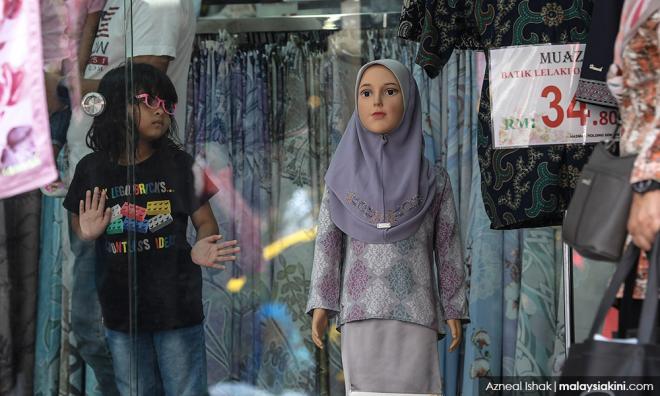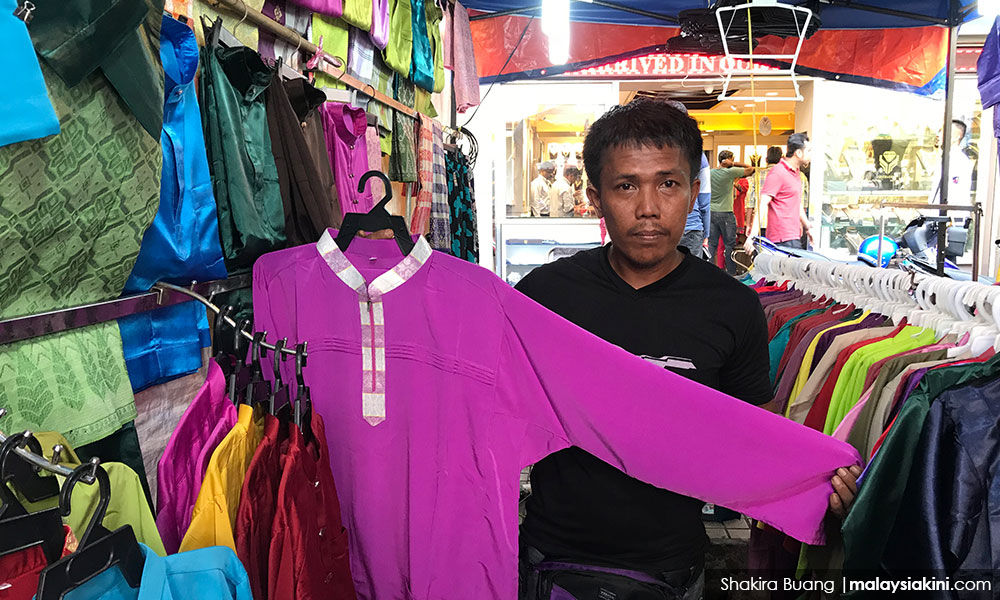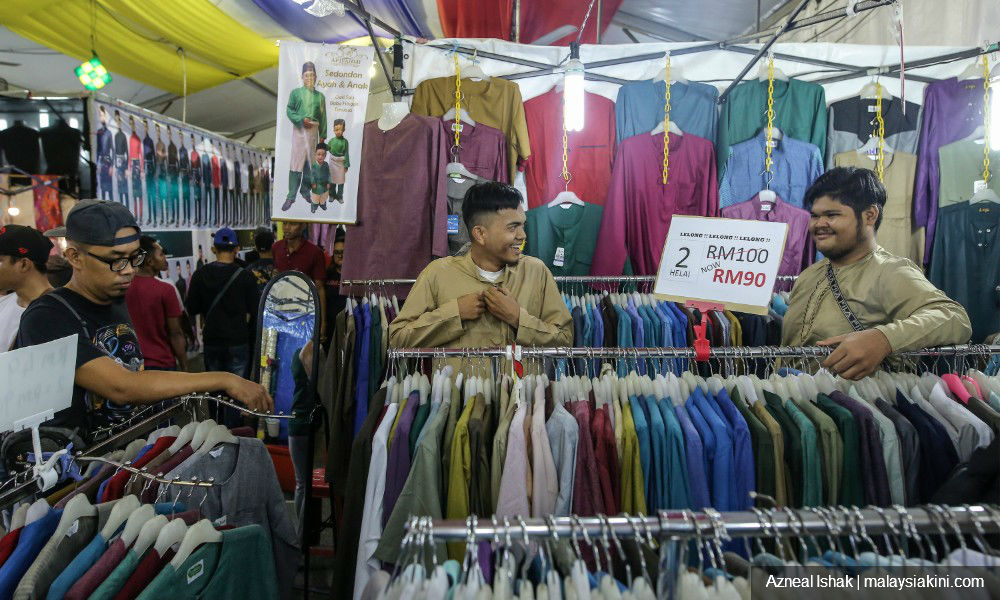
Federation of Malaysian Fashion, Textiles and Apparels (FMFTA) is appealing to the government to salvage the textile and apparel industry from going under.
This comes after the closure announcement of Hong Kong-based garment giant Esquel Malaysia and Tal Group of Companies, which operates factories Pen Apparel in Penang and Imperial Garments in Ipoh, Perak.
The closure of two companies and four factories due to the economic fallout caused by Covid-19 will put thousands of workers out of jobs.
Speaking with Malaysiakini, FMFTA protem committee chairperson Tan Thian Poh said more textile and apparel manufacturers and retailers will close down if there is no effort from the government to help the industry.
He said FMFTA has written to the government with a few proposals but has yet to receive any response.
According to Tan, there are 10,000 textile and apparel factories that employ up to 100,000 workers while apparel retailers employ 500,000 people.
For a start, he urged the government to allow textile and apparel manufacturers and retailers to get back to business by observing the strictest standard operating procedure without having to wait for the movement control order (MCO) to end on April 28.
The move would allow festive clothes for Hari Raya Aidifitri, which are currently stuck either at the production line or warehouse, to hit the retail outlets soon to allow buyers more time to shop for the occasion.
He said the factories and shops can impose very strict social distancing measures by halving their operation scale, reducing operation hours as well as limiting customers entering the premises.
"The Hari Raya Aidilfitri season sale accounts for 30 percent of our annual turnover. We need to send the baju Raya (Raya clothes) to market at least one month before the festivity," said Tan.

He noted the FMFTA proposal is meant to minimise losses following business disruption of over one month and the industry foresees bad days ahead even after the MCO is lifted.
"I was told at one particular department store, the stuck (stock of) festive clothes is valued at hundreds of millions of ringgit. If the baju Raya are unsold, then they will be kept at the warehouse until next year's Hari Raya," he said.
"The cash flow problem is the main issue the industry faced," added Tan.
He said the proposal to re-open for business would help to improve their financial status before they are forced to close down or retrench their staff.
Business is equally bad for the manufacturers who mainly do exports as overseas orders have been cancelled due to the Covid-19 pandemic and the MCO, according to Tan.
"They could not export the clothes for summer usage and their customers have to cancel when autumn looms," he explained.
He said about 60 percent of apparel manufactured in Malaysia will be exported and that makes up to RM13.8 billion.
He believed the loss incurred due to MCO was about RM2.6 billion on the production line and another RM3.46 billion on the apparel retailers' side.
He arrived to the conclusion based on the apparel and textile manufacturing sector which was value at RM22.5 billion and apparel retailers valued at RM30 billion in 2019.
"In view of global declining demand, we propose an import substitution where we can have the local manufacturers supply to the domestic market," he said, adding that the government should implement policies that are friendly to manufacturers to encourage a certain level of self-sufficiency.
Currently, the government appears to not be encouraging of manufacturing textile and clothes locally as it is perceived as a labour intensive industry, according to Tan.
Citing the import duty against some textile materials and exempt import duty against finished garments, he said this has made the local production unable to compete with imported apparel.

This can be done by giving incentives, including exempting import duty on textiles materials and sales tax.
Tan also implied that the government neglected the big companies with its RM10 billion Supplementary Stimulus Package announced by the prime minister on April 6.
"Not much help (was given to us) to reduce our burden except the wage subsidy, but it is limited to 200 employees. We have more than 200 staff," he said.
He said the employers were in a dilemma as they need to get the consent of their staff to take reduced wages, and some employers who found themselves in a difficult position would rather close down to stop the bleeding.
He said the government should be more decisive by announcing that employers can straight away reduce wages. - Mkini


No comments:
Post a Comment
Note: Only a member of this blog may post a comment.